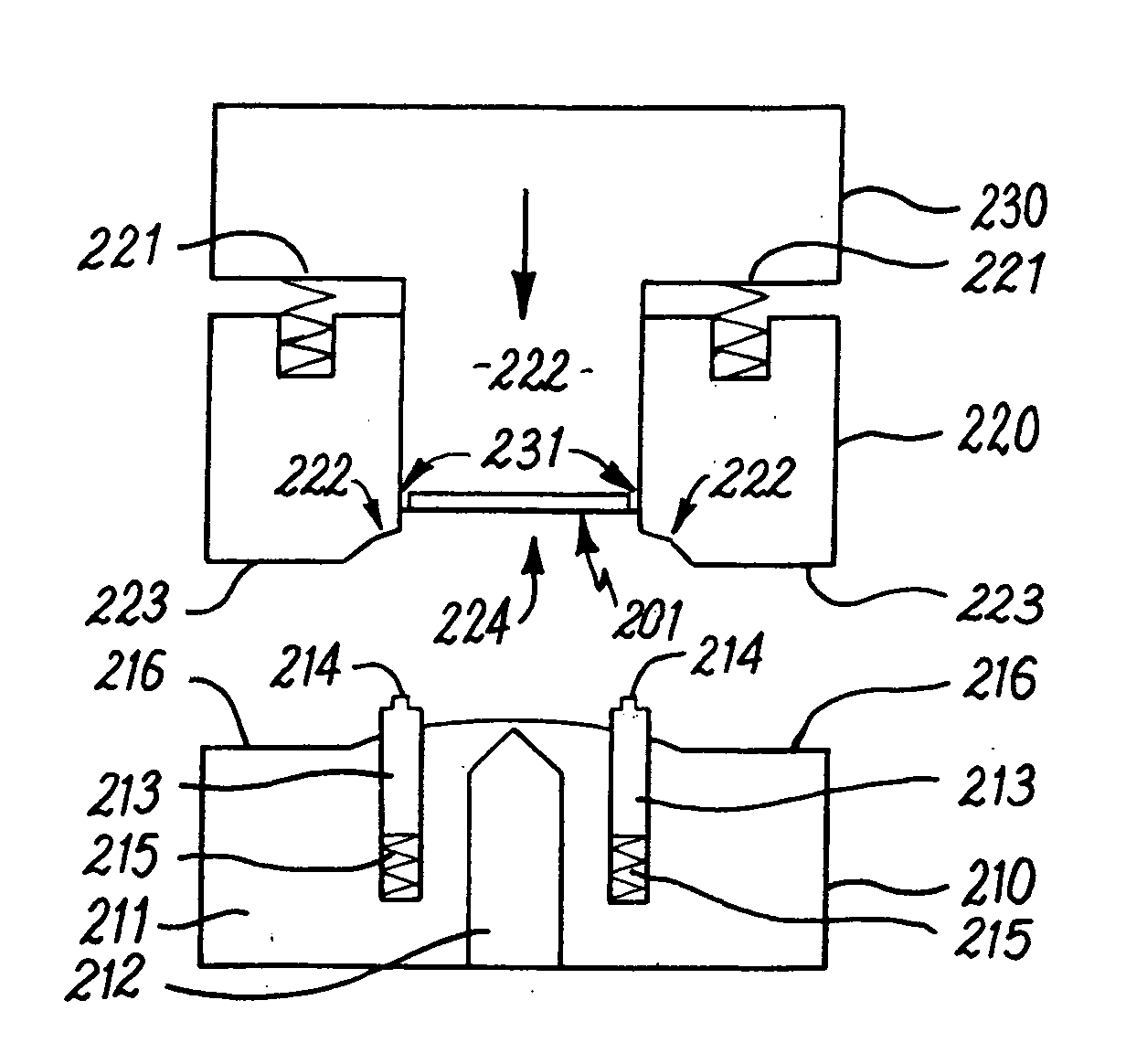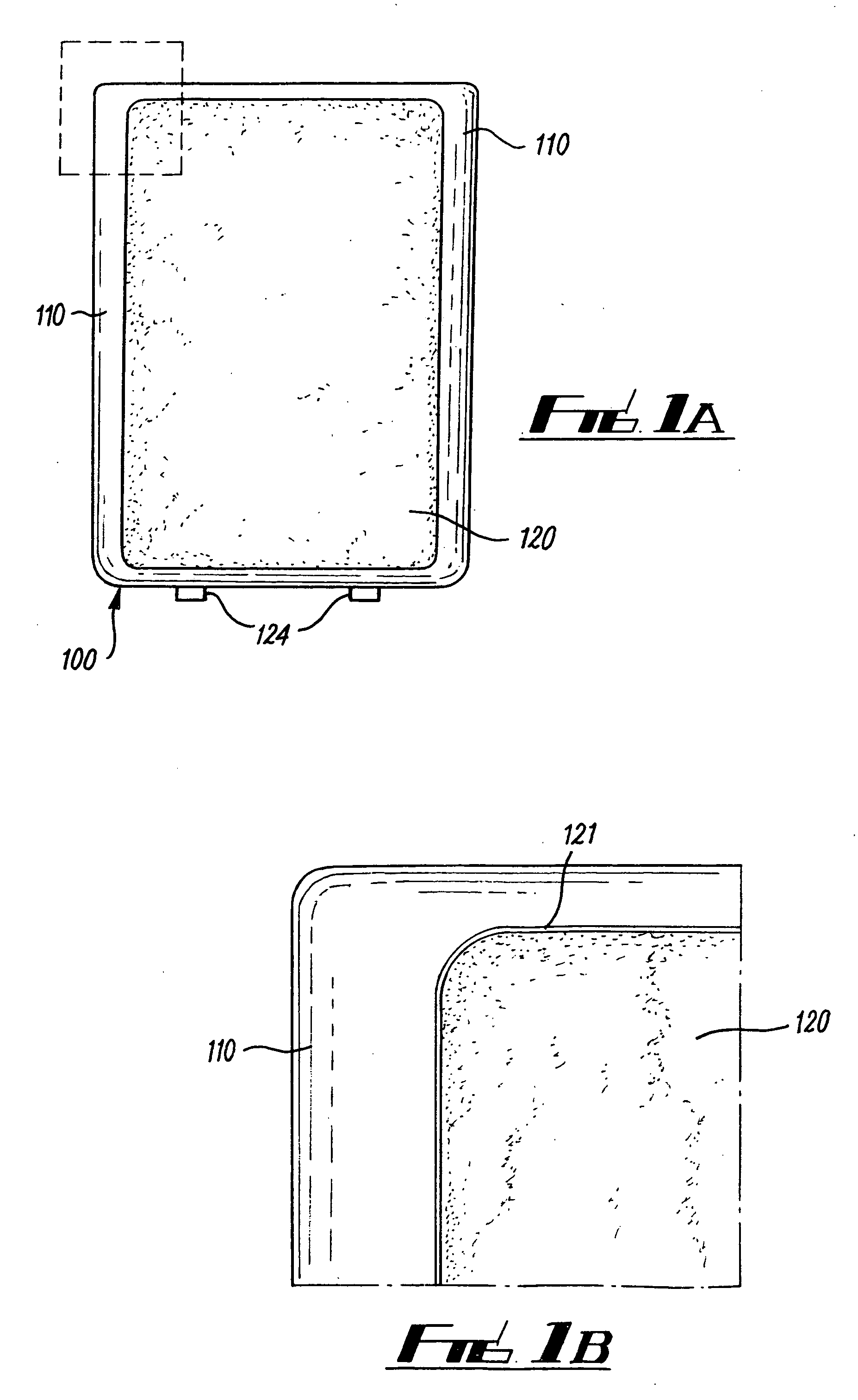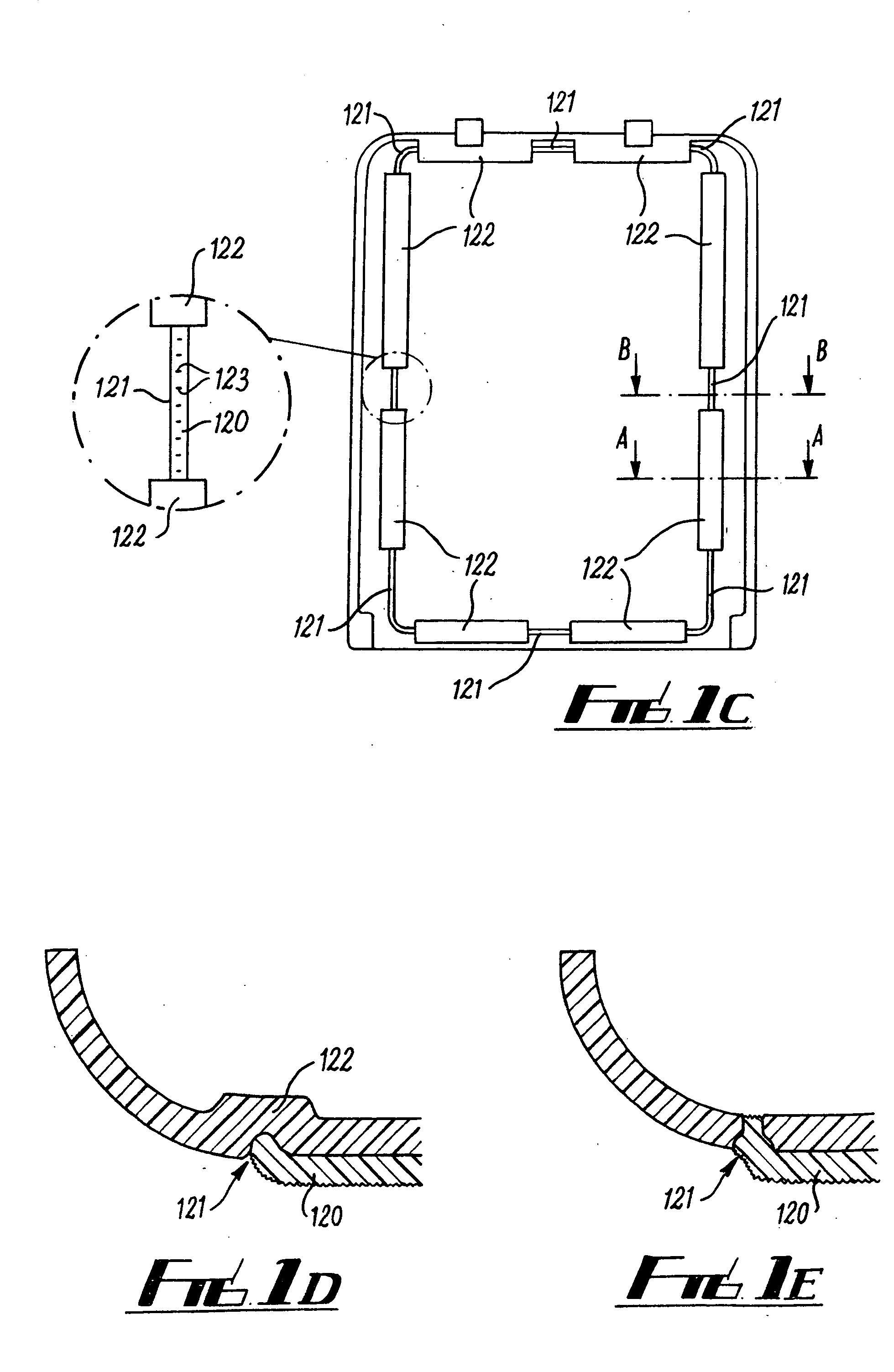In-Mould labelling
- Summary
- Abstract
- Description
- Claims
- Application Information
AI Technical Summary
Benefits of technology
Problems solved by technology
Method used
Image
Examples
Embodiment Construction
[0033] Embodiments of the invention use the Fabric In-Mould Label process. In this process, fabric is laminated to a film, which may be a polymer film. The laminate may be thermo-formed into a 3D shape. A label is then cut from the laminate and placed into an injection moulding tool. The label may be two-dimensional or, if the laminate was formed, a three-dimensional pre-form. Material such as plastics or polymer is injected into the mould and adheres to the film portion of the laminate pre-form. The result, an In-Mould Label (IML), is a moulded article with the fabric surface of the label pre-form over at least part of one or more surfaces.
[0034]FIG. 1A illustrates a battery cover for an electronic device such as a radio telephone formed using the FIML process. The battery cover 100 is a FIML comprising polymer 110 and a fabric laminate 120. The fabric laminate 120 may, for example, be 0.8 millimetre thick Alcantara bonded to 0.2 millimetre polycarbonate / ABS film using a polyureth...
PUM
| Property | Measurement | Unit |
|---|---|---|
| Thickness | aaaaa | aaaaa |
| Thickness | aaaaa | aaaaa |
| Volume | aaaaa | aaaaa |
Abstract
Description
Claims
Application Information
 Login to View More
Login to View More - R&D
- Intellectual Property
- Life Sciences
- Materials
- Tech Scout
- Unparalleled Data Quality
- Higher Quality Content
- 60% Fewer Hallucinations
Browse by: Latest US Patents, China's latest patents, Technical Efficacy Thesaurus, Application Domain, Technology Topic, Popular Technical Reports.
© 2025 PatSnap. All rights reserved.Legal|Privacy policy|Modern Slavery Act Transparency Statement|Sitemap|About US| Contact US: help@patsnap.com



